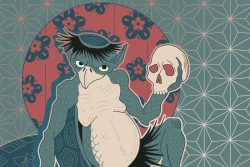
Originally published on metropolis.co.jp on September 2012

Success in search of a successor.
This could be the motto for Tokyo Jazz—and jazz itself. After a decade, public broadcaster NHK’s festival is packing Yurakucho’s giant Tokyo International Forum. Launched with Herbie Hancock at the helm, it’s become a fixture of September, and a worthy climax to the summer festival season.
But with the ranks of jazz giants growing ever thinner—82-year-old trumpeter Ornette Coleman canceled his headlining slot due to ill health—the lurking question is, who will front the festival in a decade or two?
Aside from Coleman, most of the headliners at Tokyo Jazz 2012 were not even jazz musicians. Eighty-four-year-old singer Burt Bacharach represented an artful tradition of American songcraft from a distant era, while bands like Tower of Power and virtuosos such as Joe Sample performed funk and R&B. J-pop artists Seiko Matsuda and Shikao Suga’s place on the bill seemed designed to attract crowds more than anything else.
Two answers to the question of who will lead the jazz festivals of 2020 came in the form of Norwegian band Jagga Jazzist and American songstress Esperanza Spalding. In radically different ways, both artists pointed to a robust future for jazz.
The last time 10-piece juggernaut Jagga Jazzist came to Japan was for the Fuji Rock Festival. With influences from rock and electronica, their sound appeals as much to the rock set as it does to the jazz-fusion crowd. Full-bore sets of material from their new album One-Armed Bandit—out on hip imprint Ninja Tune —at Cotton Club on Friday night and Tokyo International Forum on Saturday elicited overwhelming responses from a decidedly youngish crowd.
On Sunday at the International Forum, svelte young jazz phenom Esperanza Spalding managed to get away with dissing Japan’s emperor, and still wow the crowd. “We have a view from our hotel of some emperor’s palace—that’s cool,” the American began nonchalantly. “But are palaces going to help you when your wife comes home feeling sad after a hard day?” She then proceeded perform her paean to fathers and children of color (which she extended to the Japanese crowd), “Black Gold.”
Wielding electric and acoustic basses with casual aplomb, covering three octaves with her supple voice, batting her eyes and grinning like a sprite, Spalding and her big band finished the night with a call to get “loose and juicy.” She then led the crowd in singing along to the effervescent “Radio Song” from her new album Radio Music Society.
Blending jazz with pop and hip-hop, Spalding’s athletic vocal lines weren’t an easy singalong, but who were we to refuse?







